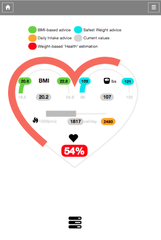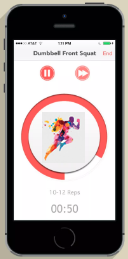Editorial articles - Year 2020
Improve Your Motivation to Lose Weight: 6 tips to keep your mind and body on track

I am a proud loser. I lost 18kg in 6 months and maintained that loss even through the lockdowns. I designed my weight loss plan based on science, but that was only half of the equation. The other, arguably more difficult half was maintaining my motivation to lose weight. I am sharing the solutions I found in my journey, not because they are revolutionary (they aren’t), but just to help you keep track of your (often neglected) psychological needs.
So... here we go.
Technology to enhance health during pandemics

UPDATE: Extra-Weight May Increase the Risk of Severe Coronavirus
Current Coronavirus pandemics represent one of the greatest challenges of humanity. With millions of reported infections and deaths around the world, it looks like we are still far to be back to our previous "normal". Digital technology is being used in different ways, from tracking and tracing apps to very sophisticated AI-based tech for early diagnosis and prevention. In the meantime, novel innovations are currently being tested while are needed more than ever. In addition, there is a need for updating the normative for the rapid testing, approval, and application of these new technologies into real life. Here I will introduce the current developments and the new technologies being tested to help to fight and improve health during the COVID-19 pandemic.
Healthy weight loss tips for teenagers

Weight loss can benefit people of all age ranges. Losing the excess of body fat can not only improve general health but also boost self-esteem and confidence. However, for teenagers, it is important that weight loss is done by making healthy long-term lifestyle changes while continuing with the normal growth process. Here are a bunch of healthy weight loss tips for teenagers.
Fitting fitness into your busy schedule - Part 2

Some people have managed to get more than enough exercise done into their daily routines but most have not. One of the biggest barriers to regular exercise is that it can be difficult to find the right time to do it. Our modern life style can be so busy that can easily take up most of our time. Here are a few more tips on how to integrate fitness into your very busy schedule.
Fitting fitness into your busy schedule

"A man too busy to take care of his health is like a mechanic too busy to take care of his tools"
Finding time to exercise can be difficult, especially after a long time of inactivity, but it is worth every minute you can invest in it. Not only is it great for you, but it sets a powerful example for other people including your own children. When your children see you moving, they want to move too. Here we have put together a few tips on how to fit exercise into your daily routine, no matter how busy you are.
Accurate Weight Loss Tracking

Tracking body weight does not necessarily mean progress due to a couple of reasons: 1st, bodyweight fluctuates throughout the day from a couple of pounds to a dozen, depending on the food, water and activity habits. And 2nd, gaining body weight does not necessarily mean you are not doing any progress as it might indicate you have gained muscle mass due to exercise or change of meal habits such as enrolling a protein-enriched diet. If you intend to reduce weight to a healthier level, at due time regular monitoring will prove useful.
Every number counts - part 2
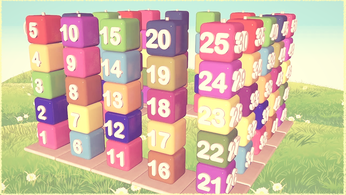
Simple things like cutting down any number of calories from meals and burning any number of calories through exercise is key for weight loss. Here I review other important numbers you should also take into account to succeeding in your journey towards a much healthier lifestyle in which “every number you cut down counts”.
For weight loss, every number counts
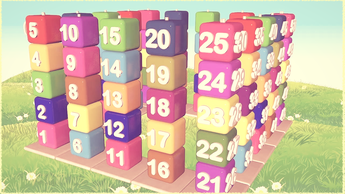
Many people eat too much and spend little time doing any physical activity. This is the reason why nearly 2/3 of the world population is overweight or obese. Simple things like eating low-calorie meals or skipping 1–2 high-calorie foods/drinks a day, and training our mind to eat the right portions and moving a bit more than usual can be a good way cut down calories and start our journey towards a healthy lifestyle because “every number you cut down counts”.
Back in shape after coronavirus - Part 2
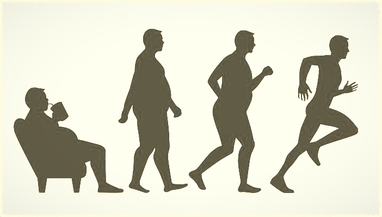
As mentioned in our previous article, weight gain due to lack of activity during coronavirus lockdown could have compromised our health and make more challenging to go back on track after. The former article focused on re-creating a nutrition mind set, the most important first step in this challenge. This complementary article will tackle a few remaining mindset adjustments aiming to succeed in our post-pandemic weight loss / maintenance / back in shape goals.
How To Do Intermittent Fasting While Weight Training
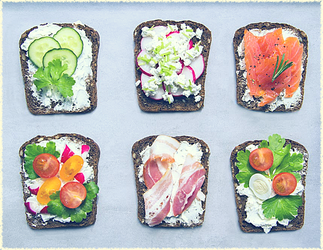
Fasting has been around for ages, though more people have become aware of its benefits in recent times. In the past, it was associated mostly with monks and religions. It is seen as a cleansing process because of the many sacrifices and discipline that is involved in it.
Although the decision to fast should be personal, intermittent fasting has become a popular means of weight training. This is because fasting leads to a series of metabolic changes that can help monitor and control a person’s weight.
Back in shape after coronavirus
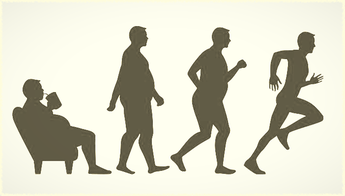
It would be normal if you have gained some extra weight due to coronavirus crisis. Many governments have made obligatory to remain home to avoid infection. We all, in general, have been eating any kinds of foods and perhaps much more than we usually do. In addition, we have been forced to remain inactive thus seriously compromising our health condition. But now that most countries are going back to normal, with only a few adjustments post-coronavirus, it is possible to lose that extra weight we got during this unusual episode. Here are some useful tips to take you back to a "healthy mind set" before it is too late!
Fit, Healthy and Safe During Lockdown
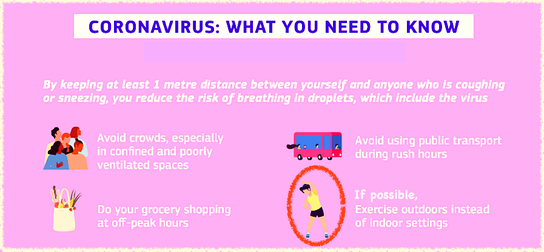
UPDATE: Extra Weight May Raise Risk of Severe Covid-19
When most of us are either encouraged or forced to stay at home during this very unique pandemic, understanding the different ways to keep safe, fit and healthy during this very unusual crisis is vital for our physical and mental capacities.
As more and more countries are getting under lockdown, there are certain measures that are crucial, both to minimise the spread of the Covid-19, but also to avoid having other future health problems due to a prolonged lack of body activity.
Balancing food and fitness for a healthy weight

This blog is meant to be a continuation of our former blog "the right fitness-diet balance" but looking at the topic from a different perspective... More about The right fitness-diet balance
“I'm prouder of my weight loss than my Oscar!" - Jennifer Hudson
When talking about food, the term "calorie" is a unit of energy that the food supplies to your body. When talking about physical activity, "calorie" is a measure of the energy that your body uses in performing the activity. Calorie balance is like a scale. To remain in balance and maintain your body weight, the calories you get from foods must be balanced by the calories you use for normal body functions and physical activities. In other words, If we eat more calories than we use, we gain weight. If we burn up more calories than we eat, we lose weight.
A Healthy Weight: last steps to reprogramming the lipostat - Part 3
We are finally having the answers to the big mystery ....
What we have learnt from science might surprise you ... here are the last 2 secrets steps to reprogramming your lipostat for a healthy weight
My new friend - Part 2

I have described earlier the most fundamental features of my new friend, and the good news is that I can now tell the world that I am so lucky because I recently realised that my friend has all those amazing qualities. But luckily, those are not the only features it has.
Here are a few more:
Basic weight loss tips

After holidays, it's time to go back in shape. Your weight is regulated by Energy Balance, and calories are part of that equation. Some diets may promise you that counting carbs or eating a bunch of fruits and veggies will make the extra pounds drop off. But when it comes to weight loss, it is calories what counts the most. The formula is really simple: "Weight loss comes down to burning more calories that you take in". You can do that by reducing extra calories from food and beverages and increasing calories burned through physical activity so that you keep a negative energy balance towards losing weight. Once you understand this basic equation, you are ready to set your weight loss goals and make a plan to reach them.





